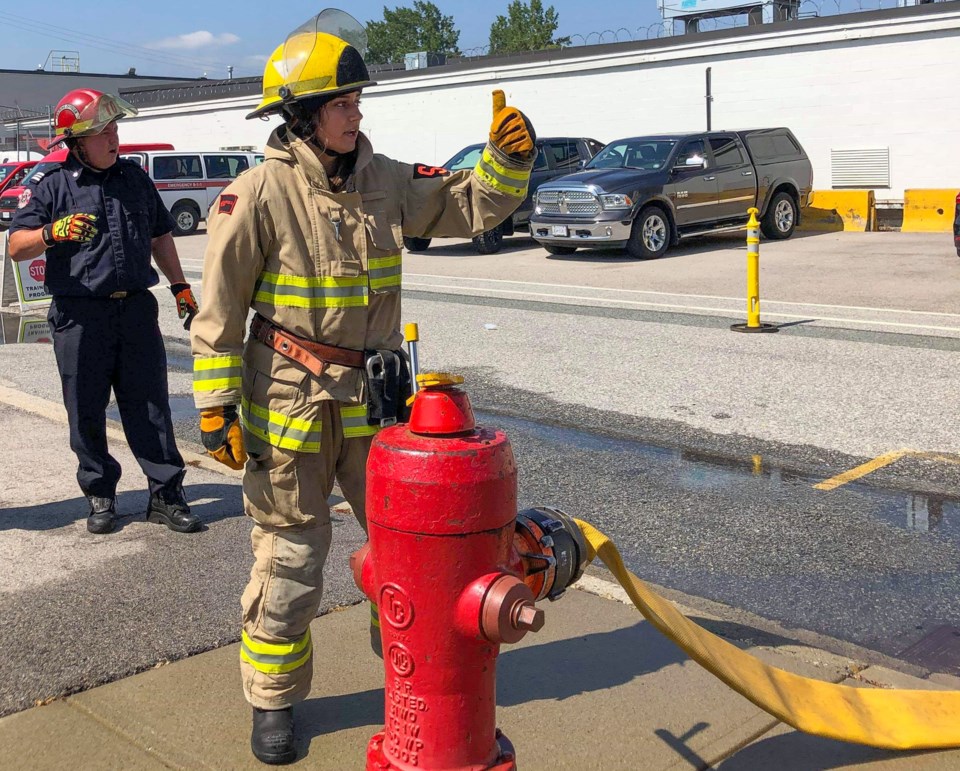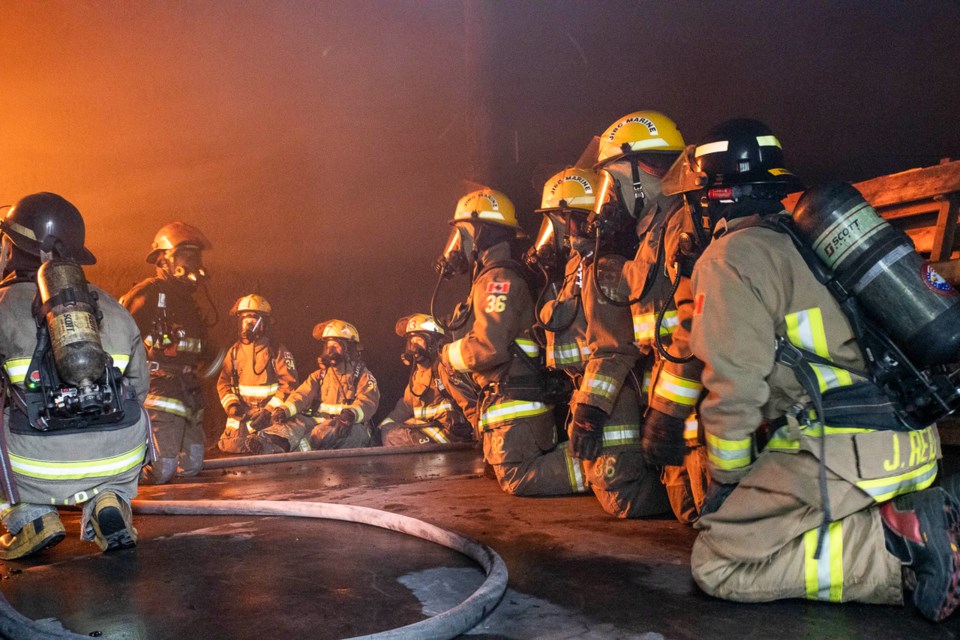The first time Port Moody’s Kelsey Eckert leaned into a rappel at the edge of the fire tower, she panicked.
“It was a bit nerve-wracking,” she told The Tri-City News. “It took me a few minutes. You have to make sure you have control over your mind before you have control over your hands and the rest of your body.”
Then, like the rest of the 20 high school girls at the fire camp, she did it again.
Eckert is one of three Tri-City teens — the others are Port Coquitlam’s Abbie Robinson and Coquitlam’s Simran Chima — who took part in a four-day program put on by female firefighters from across the Lower Mainland.
Suited up in full turnout gear, the girls enter smoke-filled buildings to rescue dummies, radioed in coordinates under the supervision of North Shore Search and Rescue and ripped the roof and doors off cars with the Jaws of Life.
“It’s about empowering these young girls and letting them know they’re not alone,” said Jennifer Dawkins, an acting lieutenant with �鶹��ýӳ��Fire and Rescue. “They leave here with a sense of strength that they didn’t have when they arrived.”
A Port Moody resident, Dawkins has helped run Camp Ignite since it started nine years ago under the slogan “You can’t be what you can’t see.”
Dawkins says while today, only 4% of firefighters across British Columbia are women, things have slowly gotten better for female firefighters over her 19-year career.
Two participants from the camp have gone on to become career firefighters while another half dozen work as on-call volunteers. Others have gone into the trades or work as paramedics and medical dispatchers.

Eckert has her sights set on becoming a career firefighter. But like many of the girls at this year’s camp, she’s also an athlete and hopes to get a soccer scholarship when she finishes high school so she can study psychology.
“Those are the two things I love: helping people and supporting and learning about mental health,” she said.
The girls got a big taste of what being in a fire means over the weekend. In one exercise, they suited up with masks and air tanks before sitting next to a burning building for 20 minutes.
Saturday, the girls spent the night at SFU, where they learned to defend themselves using pressure points, body flips and screaming loud noises.
The woman teaching martial arts also led them through steps to handle stress and trauma — tips, said Eckert, that are already helpful for a stressed-out teenager.
“In everyday life you can feel helpless in simple situations. But people sitting in a burning building, watching outside, the ache and the pain in their stomach, thinking this is the worst day of my life — I just want to help those people.”
That life is still some time away, and while her family is in her corner, even her dad reminds her it’s going to be tough.
Eckert’s answer to any naysayers: “Firefighting is a man’s world? You say I can’t do this? Watch me.”



